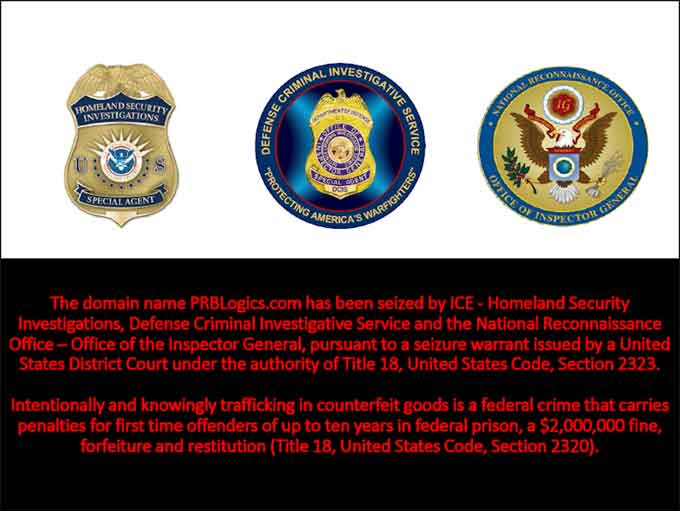
Over 1 million copyright-infringing website domain names selling counterfeit fake goods were criminally and civilly seized within the past year through the combined efforts of law-enforcement agencies across the world, high-profile industry representatives and anti-counterfeiting associations.
The ongoing intellectual property enforcement initiative targeting fake websites, dubbed ‘Operation In Our Sites,’ was facilitated by the National Intellectual Property Rights Coordination Center (IPR Center), a joint-task force agency led by U.S. Immigration and Customs Enforcement.
(Learn More about counterfeit auto parts with Robert C. Hutchinson, the acting special agent in charge, U.S. Immigration and Customs Enforcement’s Homeland Security Investigations (ICE-HSI), Miami Field Office. Courtesy of WPLG Local 10 and YouTube. Posted on Apr 5, 2018.)
The IPR Center, which stands at the forefront of the U.S. government’s response to IP theft, worked directly with key international law-enforcement authorities and industry organizations representing the electronics sector, luxury brand-name designers, film and entertainment and several entities specializing in apparel and accessories through the major enforcement effort.
Roughly 33,600 website domain names were criminally seized in a collaborative effort between ICE’s Homeland Security Investigations (HSI), Europol, Interpol and police agencies from 26 different countries.

Industry partners participating in the operation were fully responsible for civilly seizing 1.21 million domain names and shutting down 2.2 million erroneous ecommerce links featured on social media platforms and third-party marketplaces.
“The IPR Center is committed to supporting enforcement actions that target copyright-infringing websites threatening the health and safety of unsuspecting consumers by offering dangerous counterfeit goods,” said IPR Center Director Alex Khu.
“Collaborative efforts with external law enforcement agencies and industry have led to a crackdown on intellectual property theft that negatively impacts economies and funds organizations involved in other criminal activities.”

Investigations led by HSI resulted in the removal of copyright-infringing websites that sold counterfeit airbags and integrated sensors, both commodities that present a potential safety hazard.
An investigation based in Louisiana led to the seizure of five website domain names involved in the sale of fake automotive parts, which include: Chinaseatbelt.com, Airbagpart.com, Chinasafetybelt.com, Fareurope.com, and Far-europe.com.
A joint case between HSI and Department of Defense investigative agencies resulted in the removal of PRBlogics.com, a copyright-infringing website offering counterfeit integrated sensors.
Each year, the market is flooded with counterfeit products being sold at stores, on street corners and online, with increasing numbers of criminals taking advantage of the internet to deceive, sell and ship fake products directly to American consumers.
(Learn More about the economic and social impact of buying counterfeit goods. Courtesy of ICE .gov and YouTube.)
The most popular counterfeit products seized each year include watches, jewelry, handbags, wallets, wearing apparel/accessories, consumer electronics/parts, pharmaceuticals and personal care products.
The IPR Center – formally codified in the Trade Facilitation and Trade Enforcement Act of 2015 – is one of the U.S. government’s key weapons in the fight against criminal counterfeiting and piracy.
The center uses the expertise of its 24 member agencies to share information, develop initiatives, coordinate enforcement actions, and conduct investigations related to IP theft.
Through this strategic interagency partnership, the IPR Center protects the public’s health and safety, the U.S. economy and the warfighters.
To report violations of intellectual property rights, including counterfeiting and piracy, to the National IPR Coordination Center, click here.
Learn More…
FBI Warns of Cyber Scammers Targeting Holiday Shoppers, See Tips

















